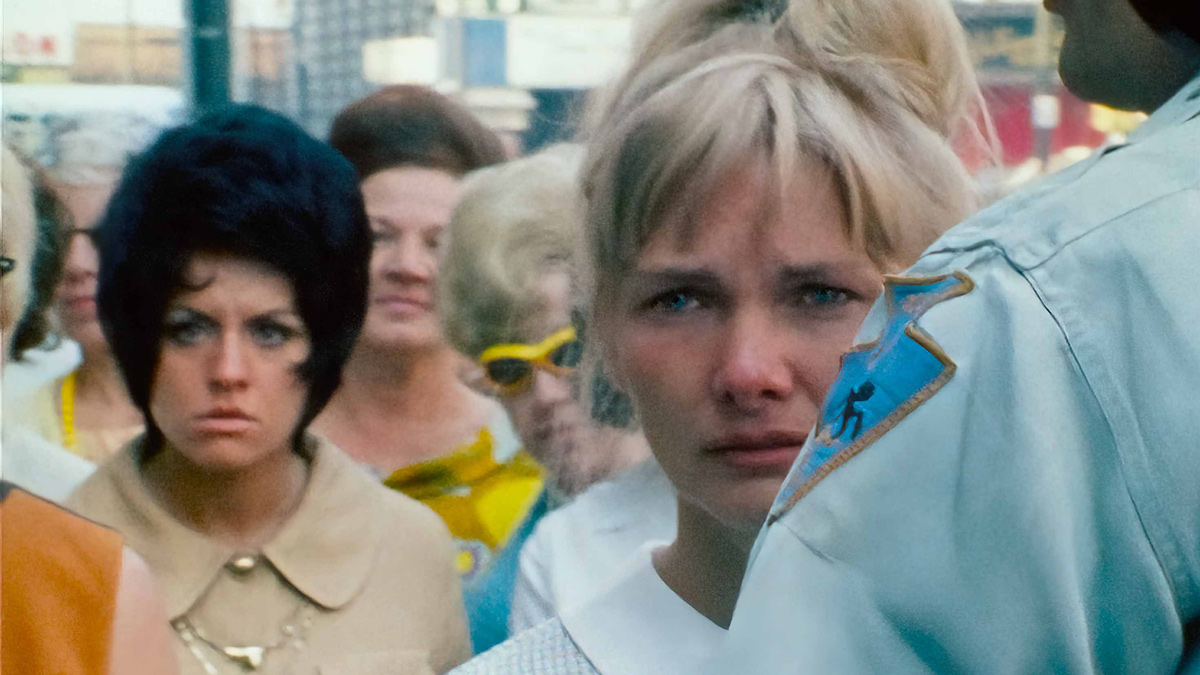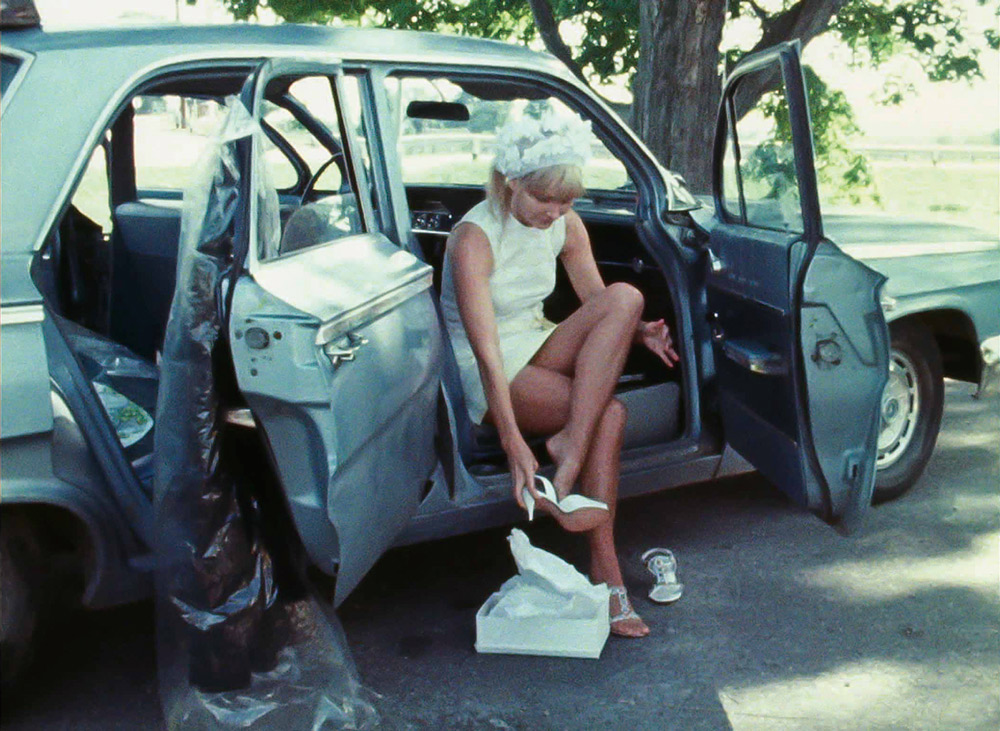
(C)1970 FOUNDATION FOR FILMMAKERS
“Wanda” A heroine who refuses to accept the ending, her never-ending story
2022.07.13
A movie/heroine who refuses the ending
Influenced by the films of Barbara Roden, Kelly Reichardt calls her feature debut, ``River of Glass'' (1994), ``a road movie with no roads.'' Just as Barbara Rhoden questioned the glorified Jack Reacher image in `` Bonnie and Clyde '' (1967) and created `` Wanda'' by changing the story, Kelly Reichardt also created a road movie. By reinventing the genre, he created a film that does not glorify the main character. ``Wanda'' is a movie that rejects the ending without glorifying the heroine. There is no ``path'' prepared for the heroine to follow.
Wanda stops by a movie theater and falls asleep. The audience seats at the movie theater are filmed in such pitch darkness that it's difficult to even recognize Wanda. While she was sleeping, the contents of her wallet were stolen. The episode about becoming penniless in front of a screen may be a reference to Barbara Roden herself, who lost herself by chasing the image created by others. Her restart in life, including meeting Dennis shortly after this episode, seems to have started from scratch.
There is a scene where Dennis goes to ask a man he knows for help escaping. While Dennis and the man meet, Wanda curls up in a fetal position in the center of the screen, listening to their conversation. Dennis temporarily acts as a kind of guardian for Wanda, allowing her to become independent in her life. I want her to accomplish something. That's bank robbery.

“Wanda” (C)1970 FOUNDATION FOR FILMMAKERS
Gradually, the two begin to look like a couple who have been together for decades. The image of Anna Karina from Godard's `` A Woman Is a Woman '' (61) is visible in the distance of Wanda, who is dressed like a pregnant woman with a cushion in her stomach. Dennis explains to Wanda how to rob a bank. It's also like a choreography or staging. Wanda feels a mixture of guilt and nervousness as she prepares for the actual robbery, and ends up vomiting in the toilet over and over again.
``Wanda'' is also a movie about defeat. Alma Malone's words to the judge, ``I had no reason to live, but I wanted to live,'' deeply disturbed Barbara Roden, who must have felt like she was a sister who had been separated from her life. A portrait is engraved here. Wanda remains unable to change anything of her own will. They cannot belong to any community. The final shot of Wanda, left behind and unable to go anywhere, continues to resonate with these words forever. Wanda's exhausted expression shows the beauty of a painfully lonely life. Wanda rejects the ending. Her story has no end.
*1 The New York Times [Barbara Loden Speaks Of the World of 'Wanda']
*2 "Suite for Barbara Loden" by Nathalie Léger
Text: Daiji Miyashiro (maplecat-eve)
Movie criticism. Contributed reviews to ``Leos Carax: Movie Wanderer'', Eureka's ``Wes Anderson Special'', Real Sound, Soen, otocoto, Toshio Matsumoto Special Pamphlet, etc.
Reserve “Wanda” now↓
『Wanda』
Released nationwide from July 9th (Saturday) at Theater Image Forum and other locations
Distribution: Crepuscule Film
(C)1970 FOUNDATION FOR FILMMAKERS

